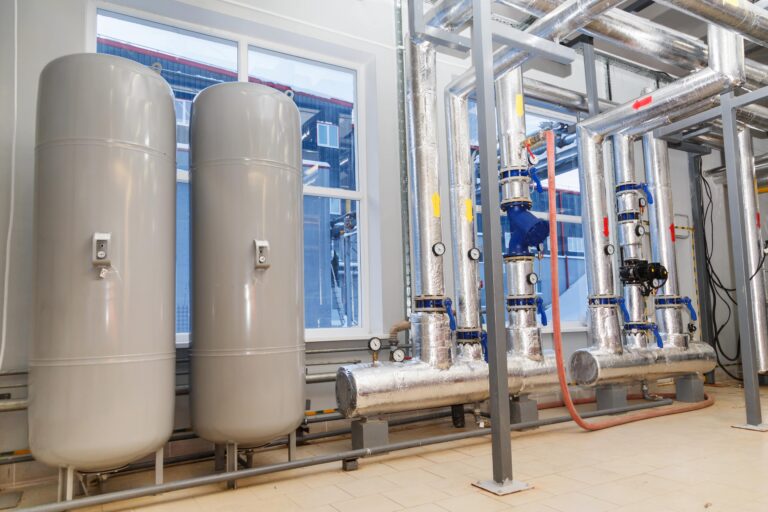To make this measure more effective and tailored to the specific context of your company, we recommend that you first perform an overall analysis of your energy situation.
Decentralisation of domestic hot water production with or without thermodynamic water cylinder
The project consists in separating the hot water production system from the heating system. This can be done in two ways:
- through partial decentralisation in summer, by adding a small boiler to heat the domestic hot water. It will allow to shut down the main boiler in summer but will still be connected to the hot water system. Decentralisation can also not be total if the domestic hot water production system is separate, either following the installation of a thermodynamic water cylinder operating at high temperature (advantage of the COP on electricity consumption linked to the production of DHW compared to an electric boiler)
- through the installation of a boiler sized to cover the DHW requirement, or the installation of suitable electric boilers with storage capacity to limit power demand peaks.
This technology is particularly suitable for hotels with a high demand for domestic hot water. Setting up this new technology will allow the company to save energy, while reducing its carbon footprint. However, implementing this measure can be rather complex with a medium-to-long-term return on investment, and requires the temporary shutdown of production during the technical installation stage.
Energy and environmental impact
The two joint positive effects are:
- Energy savings on DHW production because the energy evacuated to the outside is recovered (= waste heat).
- There is an environmental gain because final consumption for the DHW production is lower than the initial consumption.
The estimated energy savings are around 60% for the domestic hot water production system. This translates into a positive impact on the carbon footprint, particularly if the DHW was initially produced using a fossil fuel (although dependent on the initial energy production method).
State subsidy application
State subsidies
Please note: any application for government or non-government subsidies must comply with the “incentive effect”, subject to compliance with the subsidy conditions.
To ensure that the ‘incentive effect’ is respected, no binding commitment (signing a quotation; paying an advance) may be made BEFORE submitting the application file or receiving the agreement in principle from the State or the electricity and natural gas supplier following an application for subsidies.
- Financial Aid for small and medium-sized enterprises covering up to 70% of eligible costs for the implementation of a project aimed at reducing the environmental impact. The eligible project budget must be in a range from 3.000 € to 25.000 € excl. VAT.
- For more information:
- Chambre des Métiers for craft companies
- Chamber of Commerce for businesses in the non-craft sectors
Environmental protection scheme – Investment aid for the protection of the environment
- Verification of company eligibility and costs: General Directorate – Industry, new Technology and Research
- Support in drawing up the subsidy application file prior to submission to the Ministry of the Economy
- For any questions: Luxinnovation
- More information and recommendations for companies on investing in the environment are available in the Guide simplifié pour les entreprises (Simplified Guide for Businesses)
- Support in drawing up the subsidy application file prior to submission to the Ministry of the Economy
N.B. State subsidies cannot be combined for the same project
Subsidies from electricity and natural gas suppliers
Since 2015, natural gas and electricity suppliers are required to make energy savings for consumers under the obligation scheme. Since then, energy suppliers have been offering support and advice, as well as subsidy programmes for consumers to implement energy efficiency measures.
The following suppliers offer this service for companies:
N.B. Supplier subsidies can be combined with any state subsidies for the same project.

